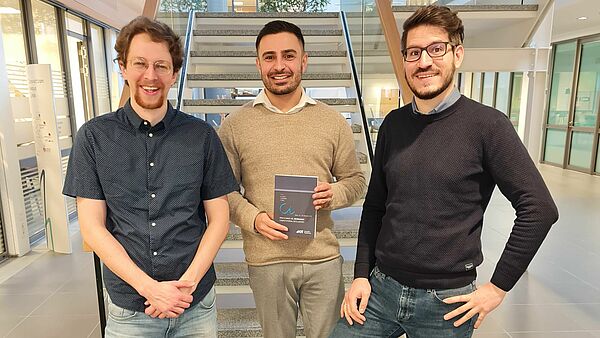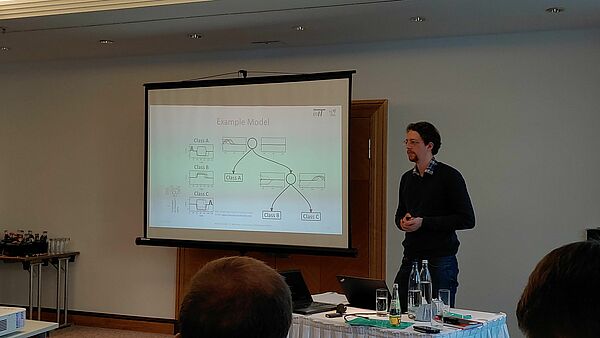On November 25 and 26, top researchers and young scientists met for the 31st workshop "Computational Intelligence" in Berlin. The workshop was organized by the VDI/VDE-Gesellschaft Mess- und Automatisierungstechnik technical committee of the same name. The Institute Industrial IT (inIT) was represented by research group leader Christoph-Alexander Holst and contributions from research associates Malte Schmidt and Halil Akcam.
Every year, leading researchers in the field of machine intelligence from all over Germany come together for the "Computational Intelligence" workshop. This workshop is characterized in particular by its distinctive technical depth of the method-based contributions and offers an excellent opportunity for intensive discussion of current research results and trends. Due to a consequent implementation of the 2G+ rule, the workshop could again take place in presence after one year of digital version.
The inIT published two contributions regarding Interval-based Interpretable Decision Tree for Time Series Classification from Malte Schmidt and Volker Lohweg and Classification of Pollen by the Means of Circular Transformations von Halil Akcam and Volker Lohweg. The two contributions address current research topics that are essential in applications: On the one hand, intelligent methods that are inherently explainable, and on the other hand, methods that are executable on hardware that is suitable for everyday use and limited in scope.
At the end, the research community emphasized the quality density of all contributions and praised the decision to hold a face-to-face workshop. "A well-founded discussion, in the scientific detail necessary for the topics, is only possible in presence," summed up research group leader Christoph-Alexander Holst.



